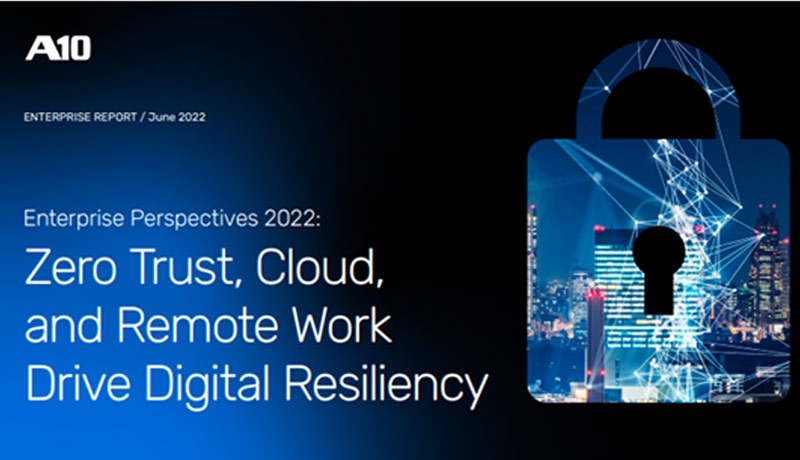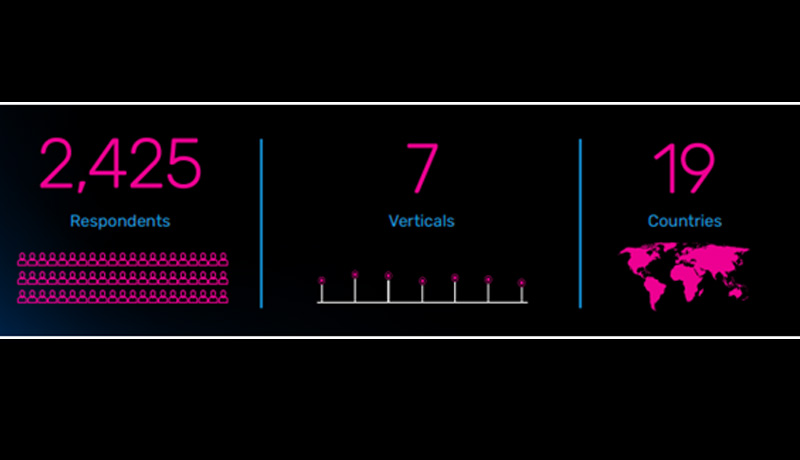3 April 2025, Thu |
10:27 AM

A10 Networks released global research that reveals the challenges and priorities of enterprise organizations in today’s post-pandemic era as we learn to live with COVID-19 and how this is shaping future technology requirements.
Nearly all (92%) of the 250 enterprise organizations surveyed in the Middle East (Saudi Arabia and the UAE) expressed high levels of concern about all aspects of enterprise digital resilience. Overall, organizations were most concerned about responding to external change, delivering superior customer experiences, and adjusting to agile practices around DevOps, but delivering superior user experience was extremely important.

Commenting on the research, Amr Alashaal, Regional Vice President – Middle East at A10 Networks said: “The world has changed irrevocably and the pace of digital transformation has accelerated beyond expectations. But as we move beyond crisis mode, organisations are now laser-focused on digital resilience, moving to the cloud and how they can shore up their defences. There is clearly a need to support employees to work in ways they are most comfortable. It’s a good sign that we are seeing organisations in the Middle East pivot to deployment of 5G, IoT and Metaverse technologies.”
“With the escalating threat landscape, post-pandemic fallout, the current Russia-Ukraine conflict, not to mention rising energy prices and inflation, there is a lot for enterprise organisations to consider. To address these issues, companies must continue to invest in modern technologies that enable automation and protection that strike the balance between defence and agility for an increasingly multifaceted infrastructure,” Alashaal added.
Rising network traffic has compounded respondents’ challenges, with 75% of Middle East enterprise organizations reporting an increase in network traffic in the last 12 months, with a 42% average increase in traffic reported.
When asked about the expected split of their future network environment, 75% of Middle Eastern enterprise organizations said it would be cloud-based, with private cloud as their preferred environment. However, they are unconvinced by cloud service providers’ security, with nearly half (47 percent) reporting that they are failing to meet their SLAs.

The Enterprise Perspectives 2022 study was undertaken by independent research organisation, Opinion Matters, among 2,425 senior application and network professionals from across ten regions including UK, Germany, Southern Europe, Benelux, Eastern Europe, Nordics, USA, India, Middle East and Asia Pacific.
The study was carried out in order to better understand the challenges, concerns, and perspectives of large enterprise organizations as they continue to adapt their IT strategy and infrastructure to the rigors of digital transformation and a hybrid work environment.
Without a doubt, the escalating threat landscape is causing a broad spread of concerns from Middle East respondents. The biggest cyberthreat concern for regional organizations is a tie between investigations and lawsuits should they suffer a data breach due to a cyber attack and ransomware.
36% of respondents from Middle East enterprise organizations say all or most employees will work in enterprise offices over the long term. This is vastly lower than the global figure of 62%. This may reflect differing levels of access to technology in the home as well as the suitability of the home environment.
Interestingly, when asked about the most critical technology for business resilience in the year ahead, 5G scored highest for Middle East respondents, followed by IoT devices to help business functions, and metaverse-related technologies.

The Middle East is the only region where 5G technology has seen widespread adoption (34%). Globally, it ranks eighth, with Artificial Intelligence and Machine Learning as the leading technology implementations. Metaverse technologies and IoT devices have undoubtedly matured, with 26 percent of Middle East enterprise organizations reporting that they have deployed both in the last 12 months. Furthermore, 23% have implemented DevOps/SecOps and Artificial Intelligence (AI)/Machine Learning (ML) technologies.
In the future, the adoption of cybersecurity initiatives, including Zero Trust models, is likely to increase. As Middle East enterprise organizations become more educated about the benefits, more widespread implementation is expected. According to the study, there will be little relief for Middle Eastern businesses in the coming years.